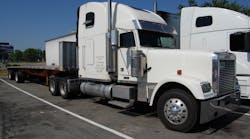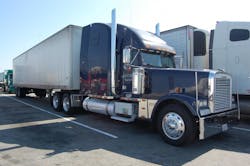There’s been a lot of talk about the so-called “gig economy” and how it might alter traditional work arrangements in the trucking industry.
As I noted in this space last year, while the so-called “gig economy” are helping provide companies – not just trucking firms – more hiring options than ever, including independent contractors, it also created more than its fair share of headaches, too.
In the 2016 Executive Employer Survey conducted by employment and labor law firm Littler, while the work schedule “shift” promulgated by the gig economy created greater flexibility for workers and increased efficiency for employers, it also spurred more independent contractor misclassification lawsuits and regulatory investigations.
Yet despite the legal challenges, more than half of respondents to Littler’s poll last year at large-cap organizations either said they were not reluctant to hire more freelancers or contractors (24%) or they were neutral on the matter (35%).
Here’s the rub, though: most Americans don’t even seem to know what the gig economy is. And if a new poll is correct, if they do know what it is, most don’t think the “gig economy” is all that “revolutionary” either.
According to a recent Workforce Monitor survey conducted online by Harris Poll on behalf of the American Staffing Association (ASA), three out of four U.S. adults (75%) have never heard of the term "gig economy," while roughly three in 10 Americans (29%) don't know how to define the term, and 31% cannot identify specific types of gig work.
The survey – which polled 2,067 U.S. adults aged 18 and older – also found that, without a definition, most U.S. adults (85%) said they may have performed what might be considered "gig" work at some point in the past.However, after being given a definition that describes “gig work” as various forms of small-project and/or freelance assignments typically facilitated by an internet platform or mobile application, the percentage drops to 20%.
On top of that, a large majority of Americans (78%) see the gig economy as a new way to describe the kind of nontraditional work arrangements that’ve already been around for a long time.
Furthermore, over half (53%) of those polled disagree that the U.S. will evolve to predominantly a gig economy within the next 20 years.
"Those findings demonstrate that many Americans are puzzled by the term, 'gig economy,'" noted Richard Wahlquist, ASA’s president and CEO, in a statement.
"Despite this confusion, and even if it is just a new term for an old approach to work, the majority of Americans don't believe that gig work will be a dominating force in the economy in the coming years," he added.
That’s something to keep in mind as trucking continues to deal with its own workforce issues, especially the need to find and keep drivers and technicians.




